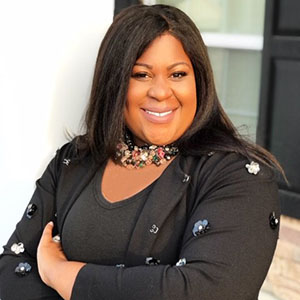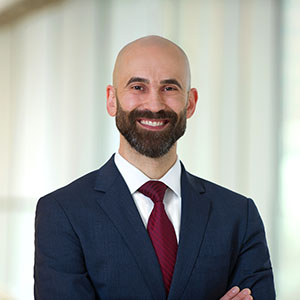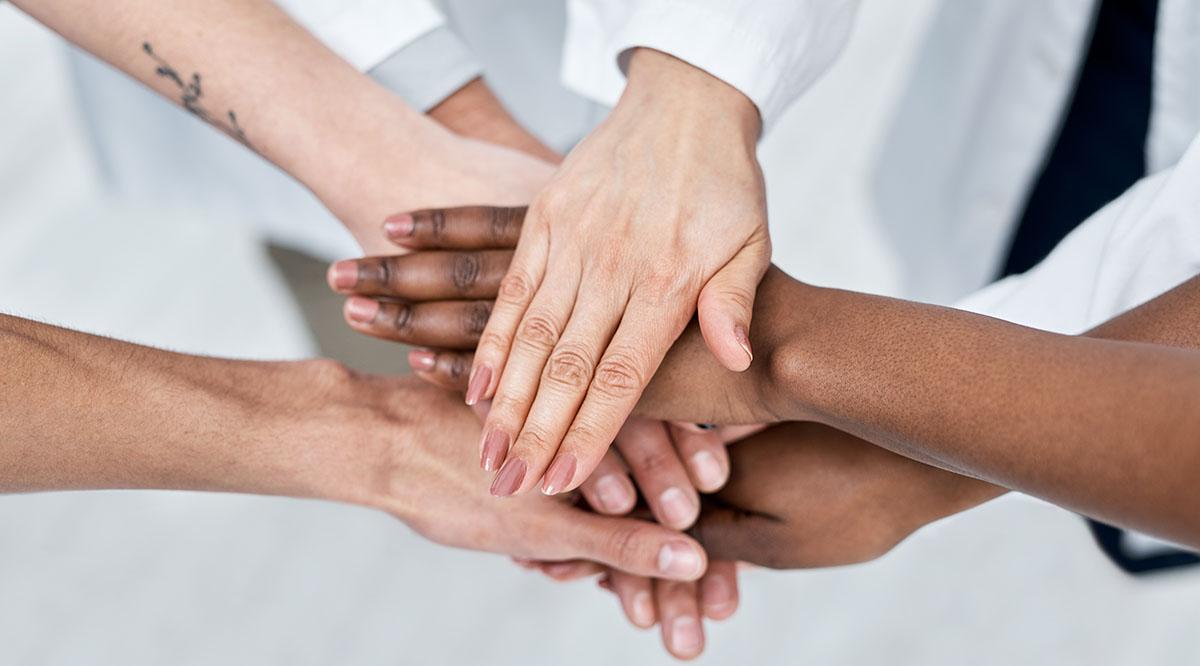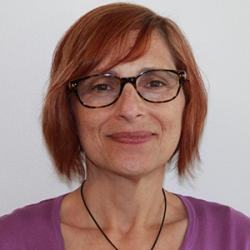“I always go back to Tuskegee.” “I don’t [want to be] a guinea pig.” “Can we get White people to test it out first?” “The system continues to fail me on a regular basis.”
These are some thoughts shared by diverse individuals in response to questions about COVID-19 vaccines, racial injustice, clinical research, and a history of health disparities in the United States.
The interviewees — 30 of them reflecting local voices from across the country — spoke with community leaders and health equity experts in late 2020 to help create the AAMC’s new Principles of Trustworthiness project.
A product of the recently established AAMC Center for Health Justice, the effort is designed to help institutions connect with local communities in meaningful ways. It's built around a toolkit that offers 10 principles to increase trustworthiness and a range of materials for applying them (details in sidebar). The hope is that it will help heal long-standing distrust of such institutions as medicine and public health among groups that have been marginalized and under-resourced.
Distrust of medicine often is quite understandable, experts note.
Many Black people bear the memory of the infamous syphilis study performed in Tuskegee, Alabama, from the 1930s to the 1970s and of gynecological surgeries done without anesthesia on enslaved Black women in the 1800s. Latinx individuals recall anti-poverty policies last century that resulted in the sterilization of one-third of Puerto Rican women without their consent. And a marked history of structural health inequities that continues today fosters deep skepticism about the medical system.
Distrust is also driving some of the hesitation around COVID-19 vaccines. Although confidence has grown, 20% of Black people and 16% of Hispanic people said in April that they would not get the vaccine or would do so only if required.
But trust-building is about much more than just the current vaccination efforts, according to Karey Sutton, PhD, director of research for the Center for Health Justice. “The work needs to continue long after this public health crisis ends,” she says.
In fact, adds center founding director Philip Alberti, PhD, “Community engagement to build trust is not a thing you do. It’s how you do all things.”
AAMCNews sat down with Alberti and Sutton to discuss why trust is so essential, what often blocks it, and some of the most effective ways to earn it.
Can you talk a bit about the history underlying distrust of medicine?

Sutton: There’s a long history of medical abuse and experimentation going back to slavery. It’s important that we call out this history because we're in a national conversation about distrust in medicine but haven’t ever really fully confronted the racist history of this country.
Alberti: And the injustice is ongoing. When we got a brand-new disease in the coronavirus, we managed to immediately create new injustices. We've seen inequities in who can and can’t avoid exposure because of long-standing systems that created certain communities’ inability to avoid infection and their difficulty accessing care when needed. We shouldn’t lose sight of how we are reinforcing inequities and injustices today.
The project asked 30 people how institutions could earn trust. Did a particular theme emerge?

Sutton: We heard about the importance of genuine relationship-building. We heard that organizations should be out in the community interacting with patients and community members.
There are organizations that have had a history of doing research projects in the community where they get what they want and then leave — and they don’t return again until they want something else. That’s very transactional. That’s not building a real relationship with a community that’s sustained.
Alberti: There's a range of what that kind of genuine presence could mean. It could mean living in the community with the patient population that you're serving. It could mean frequenting local businesses. It could mean breaking bread at community tables. If you’re a clinician making referrals to social service agencies, you also could visit those places to better understand the connections you're making for your patients.
One of the 10 principles states that the community is already educated, and that’s why it doesn’t trust you. What does that mean?
Sutton: In the past, we’ve often heard people in medicine say that we need to educate a community about a vaccine or about something else, when, in fact, the community is already educated. It’s often educated in reasons not to trust.
People know when you’re trying to do this work just for performance purposes. They’re not going to trust you if they don’t see that you’re really willing to do the work in a humble and authentic way.
Also, institutions need to recognize that the community has expertise of its own to share. An example is work that one institution has done to involve community members in their flu vaccine campaigns. Before anything is put out, they have informal conversations about the images and words they plan to use, and it’s been very effective. People from the community said they disliked negative messaging. These communities are resilient and have survived years of abuse and injustice, so they wanted language that celebrates their strengths.
Another principle says, “There’s more than one gay bar, one ‘Black church,’ and one bodega in your community.” Can you explain that?
Alberti: The work of community engagement can’t be lazy work. We can’t rely on the same community assets over and over because they might not be representative of everyone in the community. I think a lot of organizations tap into the same four or five people for years and years and years, not recognizing that communities are dynamic. Assets develop; they come and go. Also, there’s diversity within communities. There isn’t a monolith.
So this principle is about getting out there and understanding the whole landscape of potential partners.
How can the principles be applied to efforts to increase COVID-19 vaccine confidence?
Alberti: There are two answers.
First, the work really has its eyes on the next health crisis, heaven forbid there is one. If our public health, medical, and government institutions had demonstrated their trustworthiness over the last 20, 30, 40 years, we wouldn't have this current level of vaccine hesitancy. A lot of current efforts focus on building trust in a vaccine. But trustworthiness isn't about trust in a vaccine. It's about trust in the systems that develop, allocate, distribute, and dispense a vaccine.
I do think that if organizations really use this toolkit in the spirit with which it is intended — to show that they’re really willing to set aside their own power and their own hubris and engage in a bidirectional exchange of ideas and expertise — then there can be conversations around the vaccines. With creating this space for conversations, I think we can have some impact on COVID-19 vaccine hesitancy — within our own organizations as well as the communities they serve.
How is the trustworthiness project different from other long-standing efforts to reach out to local communities?
Alberti: The community members with whom we spoke are not suggesting that our institutions reach out, but rather go in — and go all in — with humility, with respect, with the desire to listen and learn. The approach is about putting the onus where it belongs: on organizations with power to demonstrate that they will use that power justly. It’s really about demonstrating that you’re acting in ways that instill trust.
It’s also important to note that these principles are really not new. We did not invent the field of community engagement or trustworthiness. What's new is more the way they're presented — with very frank and direct language. This project allowed the AAMC to be a conduit for community voices. That's why the feel is different, the tone is different.
What are some next steps for this project?
Sutton: We’ll have a series of webinars going over the principles, a video featuring experiences and insights from local community members, and a toolkit with activity and discussion guides. One of the great things about this project is it’s really focused on actions. Components of the toolkit walk you through step by step from point A to point Z.
This also is a broad enough toolkit that it’s applicable to many different types of organizations that have relationships with communities or need to have relationships. As we move forward, we also hope that any organization that interfaces with communities would use this toolkit, including schools and police departments. This is not just focused on academic medicine, because this isn't just an academic medicine problem.
Given that distrust can be quite deep, are you hopeful that academic medicine can build sorely needed trust?
Alberti: I do feel hopeful. In my 20-plus years in this field, I’ve never seen the kind of sustained focus and dialogue on issues of racism and classism, of social and racial injustice, as we’ve witnessed over these last 18 months. So I'm optimistic that the conversation isn't going away this time — which is amazing.
Our hope with this toolkit is to actually channel the current discourse, the passion and energy, in ways that can be productive in building relationships over the long term.
It's a long game, a long arc — it’s not a quick fix. A community relationship should never end at the end of a project. When you get to number 10 in the list of principles, your next step is to go back to number one.
This interview has been edited for length and clarity.

